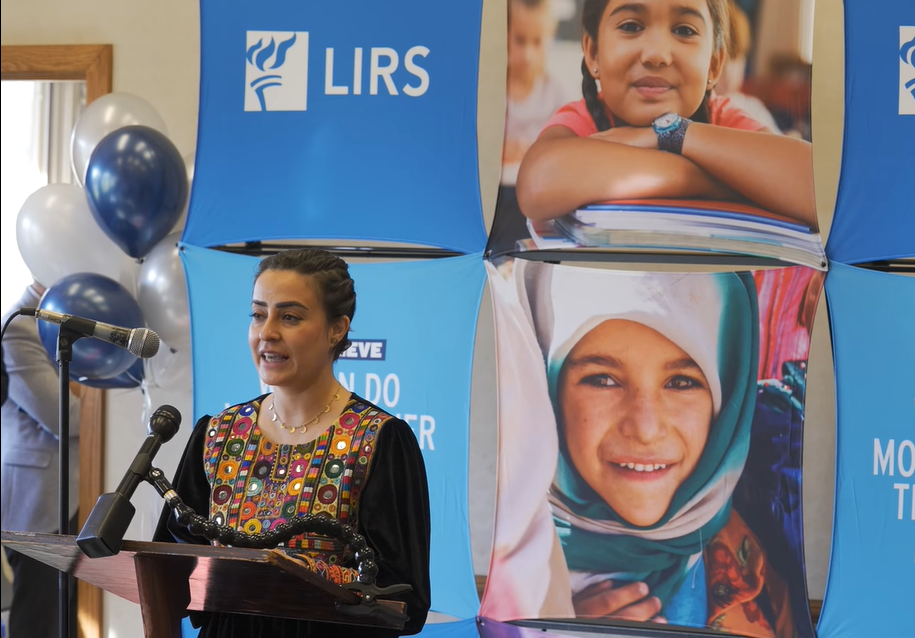
Hundreds of Afghan refugees who fled their country in the middle of the U.S. withdrawal last summer are now trying to make a home in the D.C. region. And one resettlement organization in Alexandria, Virginia, needs help meeting their needs.
The Lutheran Immigration and Refugee Service (LIRS) has resettled about 1,500 Afghan refugees in Northern Virginia since last summer, and expects to resettle several hundred more through its new site in Alexandria, which opened last month. The agency has posted an online wish list for people who want to contribute.
“I think people in our community certainly were aware of the need starting in August, because all of us were glued to our screens as we saw what was happening in Afghanistan,” said Krish O’Mara Vignarajah, who runs LIRS.
“And so we had an outpouring of tens of thousands who went to the LIRS.org website, and signed up to roll up their sleeves and volunteer. … They continue to ask if they can help with apartment setups, picking up families from the airport, mentoring families or children.”
Northern Virginia is a popular location for Afghan refugees to settle, O’Mara Vignarajah said, because it represents a diverse, prosperous region where they know there is opportunity.
“What we have found is that those areas like the D.C. metro area, Texas, California, that have had larger Afghan populations, historically, are the ones that have attracted the new arrivals,” O’Mara Vignarajah told WTOP.
LIRS, whose employees are themselves Afghan refugees, assists incoming families with resettlement, offers cultural orientation, helps enroll kids in public school and connects refugees with mentoring and workforce development, so they can land a job and become independent quickly.
One of LIRS’ workers is Muzghan Azizy, 36, who immigrated from Kabul in July, just ahead of the United States’ withdrawal from Afghanistan.
“When I arrived here, I didn’t have anything, but my bedroom was carpeted. And that helped a lot. And so we were very tired … my husband and son, so we fall asleep on the bedroom carpet,” Azizy said.
She learned that her bank account in her country was frozen and she had no way to pay the rent. A contact at the U.S. Embassy connected Azizy to LIRS.
“We only brought our clothes, so we couldn’t bring anything else, because there is a limit for things you can bring. So only our luggage was allowed,” she said.
After recovering from the journey, Azizy said she, like other refugees, had no idea where to buy food or home supplies because all the store names were unfamiliar to her, as was the transportation system. It was a month, she said, before she went shopping for furniture.
“Delivery takes time here. Like, in Afghanistan, it wasn’t like that,” she said, describing one of the dozens of experiences that are different than she expected. “We went to furniture shopping. We were like, ‘We want to buy this,’ and you just take it and go home. That’s all. But here, they’re like: … ‘We don’t sell things that are on floor. … We have to have it in stock.'”
Azizy’s family now lives in Falls Church, and they all speak English. Her 13-year-old son speaks fluently, as he attended an international school in Afghanistan. Azizy still wants to take time to learn more about the community she lives in, but for now she is spending her days helping other refugees find stability and make America home.
“Sometimes it’s like too much work during the day, but at the end of the day when I log off from my computer, and separate myself and think of how many people could help, it feels great. They really need support at this time,” she said.
Hear more of Azizy’s story here.








